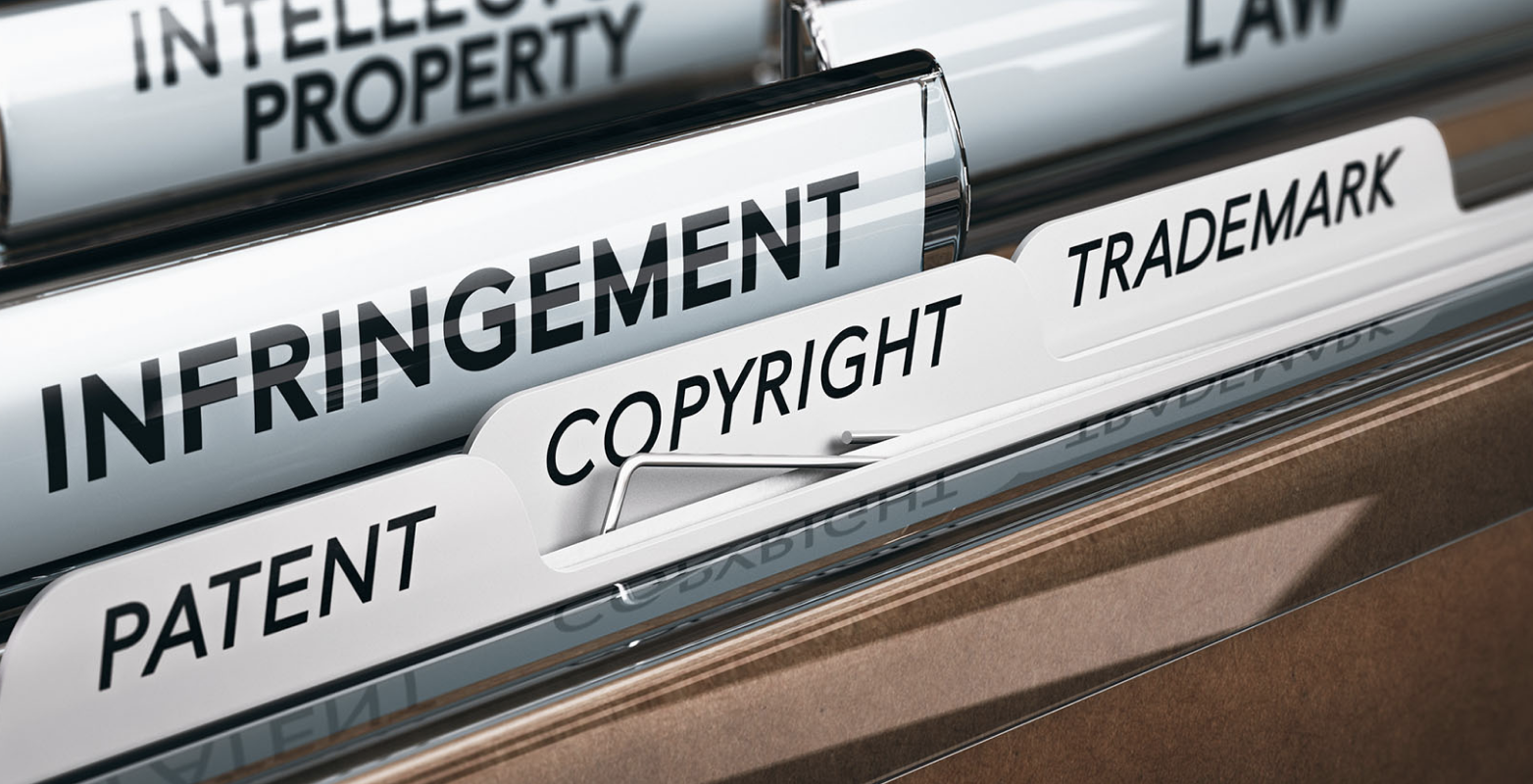
Sterling Law’s intellectual property department can help you navigate the confusing landscape of IP law. Intellectual property rights serve as the cornerstone of innovation and creativity in the contemporary global economy. They furnish creators, innovators, and enterprises with a legal scaffold to safeguard their intangible assets, encompassing inventions, artistic creations, brand identities, and confidential information. Neglecting the significance of intellectual property rights can precipitate profound repercussions, spanning from the erosion of competitive advantage to protracted and expensive legal disputes concerning infringement.
In the fiercely competitive milieu of today’s marketplace, the preservation of intellectual assets emerges as a pivotal imperative for nurturing business expansion and preserving a competitive edge. Whether you represent a burgeoning startup, a well-established corporation, or an individual originator, Sterling Law remains unwaveringly committed to guiding you through the intricate complexities of IP law and fortifying the protection of your invaluable intellectual property rights.
What is a Patent?
A patent represents a legal protection granting inventors exclusive rights to control their inventions’ use, production, or commercialization for a specified period. The invention may comprise either a product or a process. Patent owners possess the right to restrict unauthorized activities legally and may pursue remedies such as injunctions or financial compensation for infringements.
By publicly disclosing an invention, an inventor gains exclusive usage rights for 20 years, after which the invention becomes public property. This principle, known as the “patent bargain,” incentivizes innovation by ensuring temporary exclusivity.
Advantages of Patent Registration
Patents are vital assets in intellectual property portfolios. Owners can enforce these rights to protect business interests and revenue channels. Patents are transferable—meaning they can be sold, licensed, or used as security to attract investors, significantly enhancing a company’s market value.
In the United Kingdom, patents can be obtained as GB national patents (issued by the UK Intellectual Property Office according to the Patents Act 1977) or as European patents validated in the UK (granted by the European Patent Office under the European Patent Convention).
A GB national patent exclusively applies within the UK jurisdiction, requiring UK courts for legal enforcement or challenges. Similarly, once validated in the UK, European patents carry equivalent authority to national patents.
After granting a European patent, owners can opt for unitary protection. A “unitary patent” provides uniform coverage across 18 EU member states, enforced by the Unified Patent Court (UPC). Although unitary patents do not extend to the UK following Brexit, global patent strategies remain essential for comprehensive protection.
Supplementary Protection Certificates (SPCs)
Supplementary Protection Certificates (SPCs) extend the patent protection term by up to five additional years, specifically for pharmaceutical or plant protection products. They compensate businesses for the extensive duration required between filing a patent application and securing market authorization. SPCs represent substantial commercial value, and the UKIPO manages them nationally within the UK.
Confidential Information, Trade Secrets, and Know-How
Confidential information, trade secrets, and know-how often intersect, yet each represents a distinct form of non-registrable intellectual property protection. Effective management of these resources provides businesses with significant competitive advantages by safeguarding critical internal knowledge from unauthorized disclosure or use.
Trademark Protection
Trademarks safeguard distinctive brand identity elements such as logos, brand names, or symbols. Upon meeting specific legal criteria, these statutory rights are registered via the UK Intellectual Property Office. Trademark protection applies throughout the UK, with registrations requiring renewal every ten years and neglecting renewal deadlines, resulting in loss of trademark rights.
Moreover, trademarks must be actively used; otherwise, after five years of non-use without valid justification, trademarks become vulnerable to cancellation.
Registered trademarks allow owners to prevent third parties from using identical or confusingly similar signs that could mislead consumers, unfairly exploit brand recognition, dilute the brand’s unique identity, or harm its reputation.
Passing Off: Unregistered Trademark Protection
Passing off represents a unique judicial remedy in the UK, often described as “unregistered trademark protection.” It explicitly addresses scenarios where competitors use similar branding or product appearance to mislead consumers into purchasing their products instead. However, demonstrating passing off requires clear evidence of consumer confusion and existing brand reputation, challenging this legal route. Consequently, formal trademark registration offers more transparent and more enforceable protection.
Copyright Protection
Copyright safeguards diverse creative outputs, including literature, music, drama, artwork, software, sound recordings, and performances. As an unregistered right, copyright protects and can significantly enhance a company’s intellectual property strategy, covering assets like websites, databases, promotional content, and strategic business documents.
In the UK, copyright protection typically lasts the author’s lifetime plus 70 years. International reciprocal agreements extend copyright protection across numerous jurisdictions, enhancing its value.
Designs: Registered and Unregistered
Design protection in the UK involves several options: registered designs, unregistered designs, and supplementary unregistered designs (introduced post-Brexit). Registered and supplementary unregistered designs protect two-dimensional and three-dimensional products’ novel and distinctive visual features.
Registered designs are cost-effective and protected for 25 years, whereas unregistered rights automatically commence upon public disclosure and last three years. The supplementary unregistered design addresses rapid product cycle standards in fashion-related industries.
Additionally, the UK’s unique unregistered design adequately covers non-standard three-dimensional appearances of functional items, offering up to 15 years of protection against unauthorized copying.
Anti-Counterfeiting
Counterfeiting poses a formidable threat to businesses, leading to revenue depletion, erosion of brand reputation, and potential harm to consumers. Our seasoned attorneys are adept at devising and executing effective strategies to combat counterfeiting, encompassing the issuance of cease and desist notices, institution of civil litigation, and collaboration with law enforcement agencies to ensure the enforcement of your rights and the preservation of your brand integrity.
Why Sterling Law?
Choosing Sterling Law for your intellectual property needs offers numerous advantages:
- Expertise. Our IP lawyers possess extensive experience and expertise in all aspects of IP law, allowing us to provide informed advice and effective solutions tailored to your unique circumstances.
- Personalized approach. We understand that every client and every case is unique. We take the time to listen to your concerns, understand your goals, and develop personalized strategies to achieve the best possible outcomes.
- Client-centred service. Client satisfaction is our top priority. We strive to deliver exceptional service, maintaining open communication, and keeping you informed at every stage of the legal process.
- Results-oriented representation. Whether negotiating agreements or litigating disputes, our attorneys are dedicated to securing favorable results for our clients. We leverage our skills, resources, and network of industry contacts to protect your interests and maximize your success.
Sterling Law is your trusted partner for navigating the complexities of intellectual property law in London. Our IP lawyer, Katsiaryna Pazniak, has a wide experience in business and IP strategy planning. She has an LL.M in Intellectual Property Law from University College London. She obtained her first specialisation whilst studying Commercial and Corporate Law at Charles University in Prague. Katia is also a qualified lawyer in Belarus and has an International Law degree from Belarusian State University. Katia provides IP services for small businesses, large companies, start-ups willing to register their logo and name, self-employed artists, photographers and creators.
Contact us today to schedule a consultation and discover how we can help safeguard your intellectual assets, mitigate risk, and drive your business forward.

















